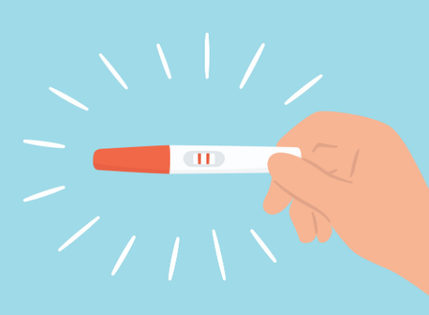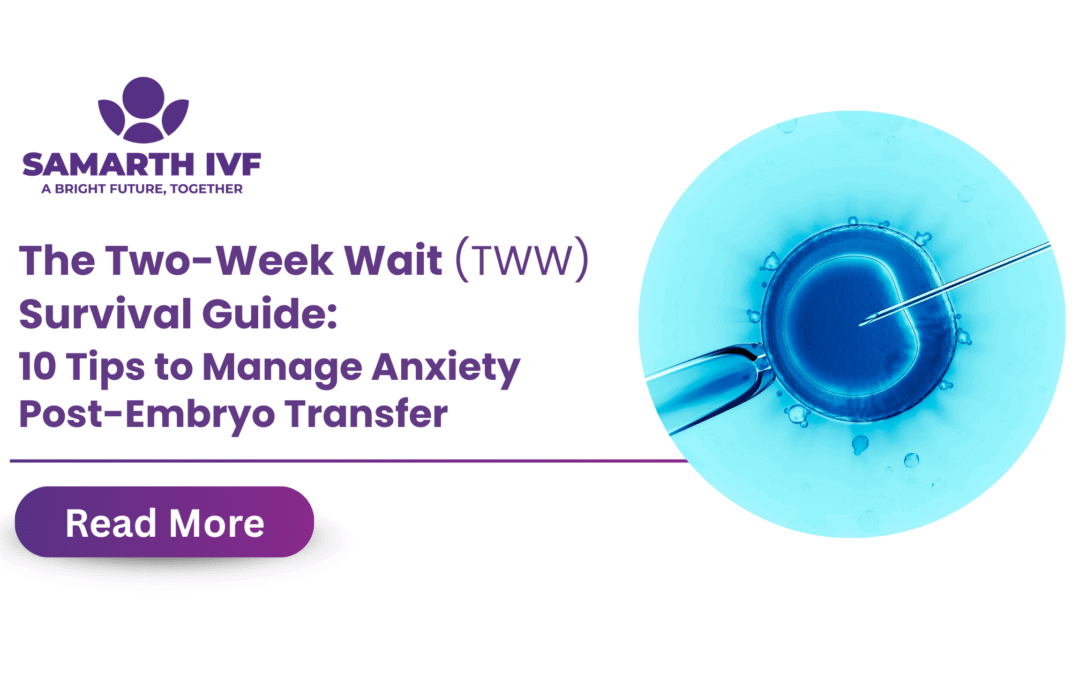The “two-week wait” (TWW) is perhaps one of the most emotionally challenging periods in any fertility journey. After the hope and anticipation of an embryo transfer, the subsequent 10 to 14 days spent waiting to discover if conception has occurred can feel like an eternity, brimming with anxiety, speculation, and intense emotional swings.
Understanding the Two-Week Wait and Its Emotional Impact
The TWW is the period between embryo transfer (or ovulation in natural cycles) and the pregnancy test. During this time, the embryo is ideally implanting and beginning to grow, but there are no definitive signs. Common anxiety symptoms during this time include heightened stress, irritability, difficulty concentrating, sleep disturbances, and a constant urge to “symptom spot.” The intensity comes from the high stakes—the culmination of immense emotional, physical, and financial investment in the fertility process. It’s crucial to understand that experiencing anxiety during the TWW is incredibly normal; however, recognizing the difference between normal anxiety and overwhelming distress is important for your well-being

1. Create a Supportive Daily Structure
Establishing a routine can provide a sense of control amidst uncertainty.
- Consistent Schedule: Aim for regular wake and sleep times to regulate your body’s natural rhythms.
- Planned Gentle Activities: Incorporate light, enjoyable activities that can occupy your mind without adding stress. Think short walks, listening to music, or light reading.
- Realistic Expectations: Don’t pressure yourself to be highly productive. Acknowledge that your emotional energy might be lower.
- Flexibility: Be prepared for days when you feel more emotional and adjust your plans accordingly without judgment.
2. Master Mindfulness and Relaxation
Techniques

Mindfulness can help anchor you in the present moment, reducing rumination about the future.
- Deep Breathing: Practice slow, deep abdominal breaths to calm your nervous system. Inhale for four counts, hold for four, exhale for six.
- Guided Meditation: Many apps offer meditations specifically for fertility patients, focusing on peace and acceptance.
- Progressive Muscle Relaxation: Tense and then relax different muscle groups in your body before bed to release physical tension.
3. Maintain Healthy Physical Habits
Nourishing your body supports your mental and emotional resilience.
- Clinic Guidelines: Adhere strictly to any post-transfer activity restrictions given by your clinic.
- Nutritious Food: Focus on a balanced diet rich in fruits, vegetables, lean proteins, and whole grains to support mood and energy.
- Hydration: Drink plenty of water to support overall bodily functions and well-being.
- Gentle Movement: If approved by your doctor, incorporate light walks or gentle stretching to alleviate tension.


4. Manage Information Overload and Symptom Spotting
The internet can be both a blessing and a curse during the TWW.
- Limit Online Forums: While support groups are valuable, excessive browsing can fuel anxiety.
- Symptoms Vary: Understand that early pregnancy symptoms are highly variable and often overlap with medication side effects.
- Resist Over-analysis: Try not to scrutinize every twinge or sensation. Most early “symptoms” are not reliable indicators.
- Worry Time: Allocate a specific, limited time each day (e.g., 15-30 minutes) to acknowledge and process your worries, then consciously redirect your focus.
4. Manage Information Overload and Symptom Spotting
You don’t have to go through this alone.
- Communicate with Your Partner: Share your feelings, fears, and needs openly. Your partner is a crucial source of support.
- Connect with Others: Reach out to friends, family, or support groups who understand the fertility journey.
- Set Boundaries: It’s okay to limit conversations with well-meaning individuals whose advice or questions might increase your stress.


6. Develop Healthy Distraction Strategies
Distraction isn’t avoidance; it’s a coping mechanism to give your mind a break.
- Creative Projects: Engage in hobbies like painting, knitting, writing, or gardening.
- Enjoyable Activities: Plan outings with friends, go to the movies, or visit a museum.
- Uplifting Media: Watch comedies, listen to engaging podcasts, or read a captivating book unrelated to fertility.
- Work Focus: If your job allows, immerse yourself in projects that bring satisfaction.
7. Practice Self-Compassion and Emotional Regulation
Be kind to yourself during this difficult time.
- Normalize Anxiety: Remind yourself that it’s completely normal to feel anxious, hopeful, scared, and everything in between.
- Positive Self-Talk: Challenge negative thoughts with reassuring and compassionate internal dialogue.
- Allow Emotions: Give yourself permission to feel your emotions without judgment.
8. Prepare for Test Day and Results
Having a plan can reduce last-minute stress.
- Logistics: Know when and where you’ll take the pregnancy test.
- Emotional Support: Arrange to have your partner, a close friend, or family member available for support, regardless of the outcome.
- Prepare for Scenarios: Mentally prepare for both a positive and a negative result.
- Sharing Results: Decide in advance who you want to share the results with and when.


9. Know When to Seek Additional Support
Sometimes, external help is needed and incredibly beneficial.
- Overwhelming Anxiety: If your anxiety becomes debilitating, affecting your sleep, appetite, or daily functioning, it’s a sign to seek help.
- Professional Counseling: A therapist specializing in fertility can provide coping strategies and a safe space.
- Medication Options: Discuss with your doctor if anti-anxiety medication could be a short-term option to help manage severe symptoms during this period.
Conclusion
The two-week wait is a test of patience, resilience, and emotional strength. By implementing these strategies, you can navigate this challenging period with greater calm and self-compassion, knowing you’re doing everything you can to support your well-being.

